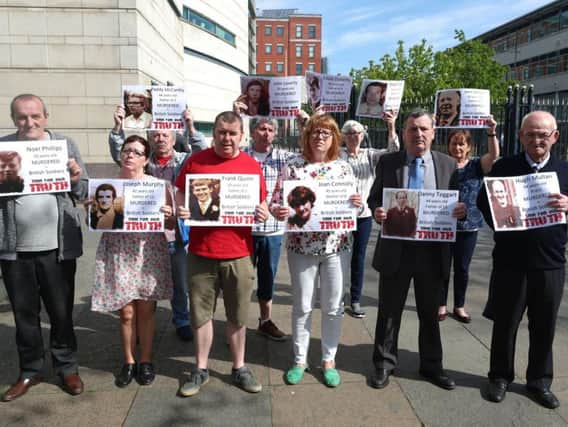Paramilitaries or the army could have had ammo fired at Ballymurphy - experts


Paramilitary groups were able to obtain military-grade bullets at the time of the shooting dead of 10 people in West Belfast in August 1971, a witness told the coroner's court in Belfast.
Ballistics expert Anne Polland from Forensic Science Northern Ireland (FSNI) received the information from police intelligence.
Advertisement
Hide AdAdvertisement
Hide AdShe read out a report agreed by specialists for the coroner, Ministry of Defence and victims' families after examining injuries caused to the victims.
"It was military-produced ammunition.
"Paramilitary groups at that time were able by whatever means to get their hands on weapons and ammunition which was military-sourced.
"There is a possibility that they may also have had some of this type of ammunition in their possession."
The senior scientific officer said she had sought and received the information from police intelligence and had not checked its veracity.
Advertisement
Hide AdAdvertisement
Hide Ad"We just wanted to cover all options as to why these guns may have been in Northern Ireland at the time."
Claims loyalists may have been involved in the killings have been questioned during earlier hearings of the inquest.
Ms Polland was challenged by barrister for the deceased Fiona Doherty as to why she had sought the information.
The witness added it "was not information that we had to hand but we were aware that police intelligence would have this information".
The victims were unlikely to have been shot from close range, her evidence given to the inquest showed.